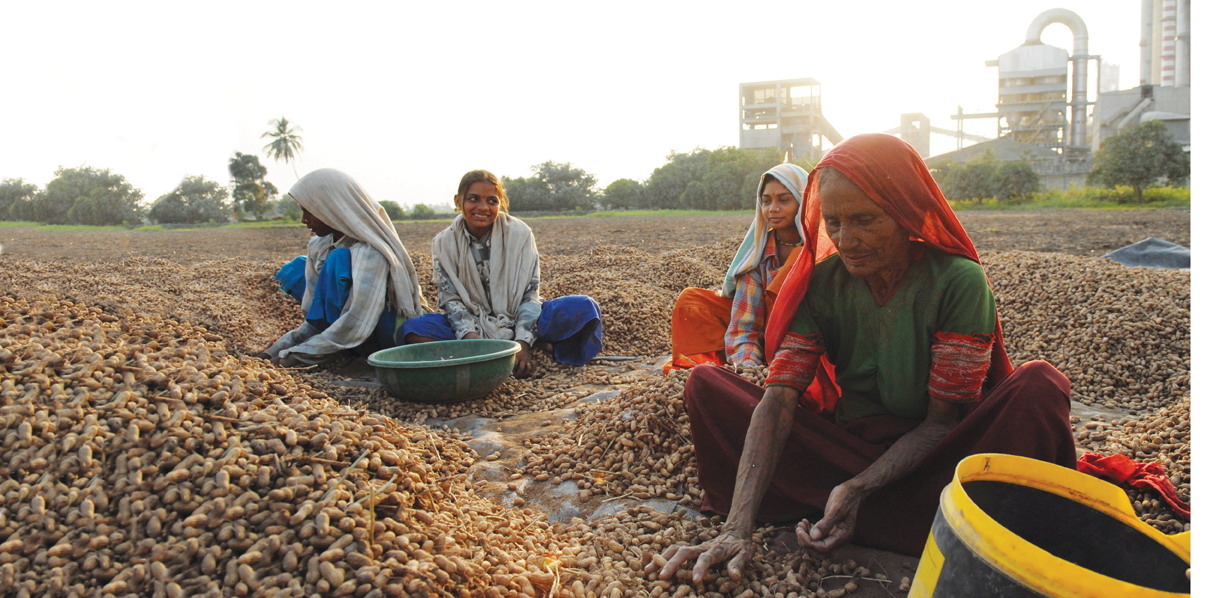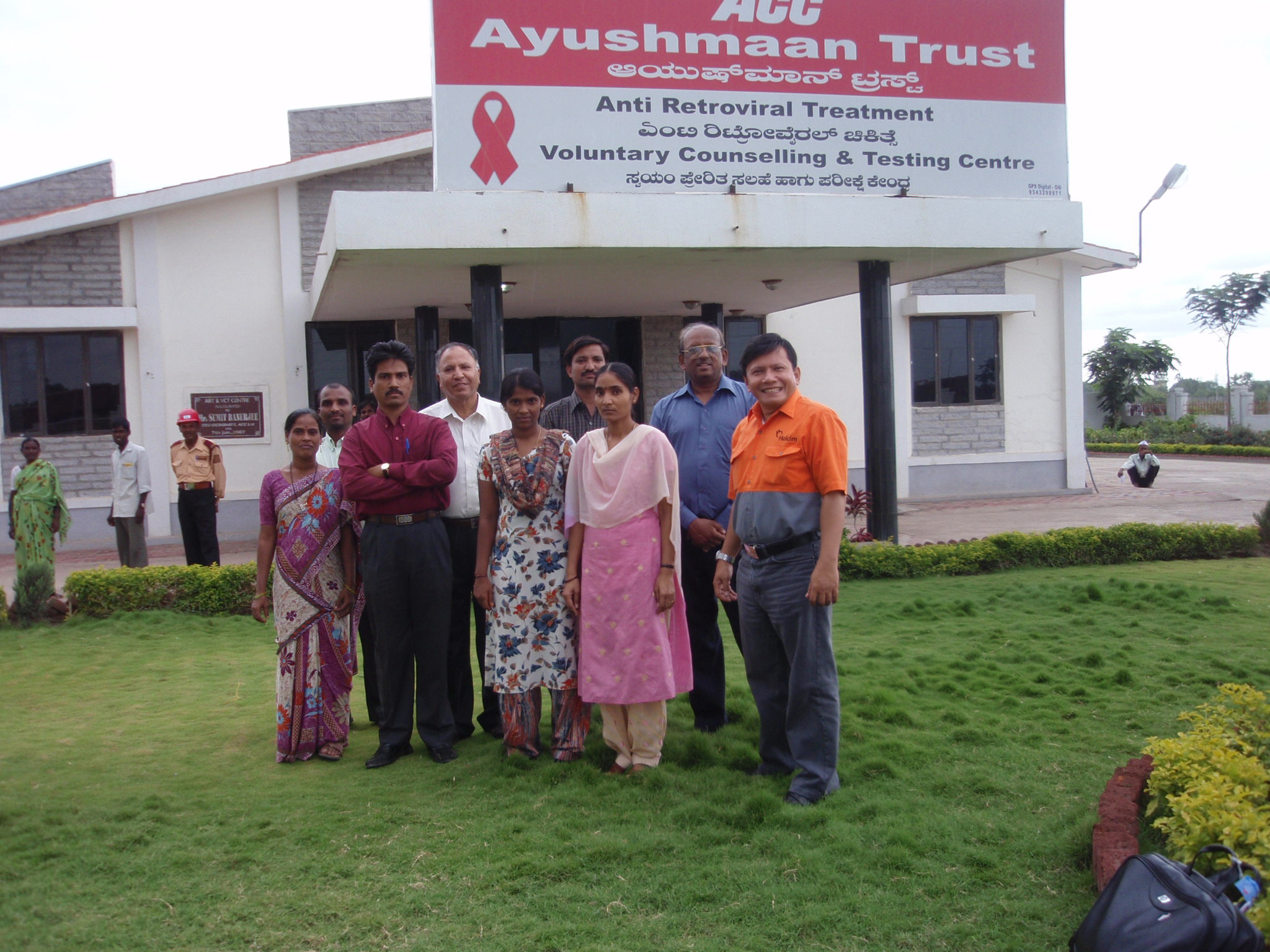|
The Holcim CSR Approach –Examples from India
T he
Holcim CSR approach is strategic, not philanthropic. This approach aims
to build the capacity of people and organisations through investment and
engagement, which goes beyond the act of corporate donation. Since the
launch of Holcim’s CSR policy in 2003, all Holcim Group companies have
integrated the approach in their business plan and have developed a CSR
strategy based on local needs assessment and active stakeholder
involvement in planning, management and evaluation of CSR engagement.
Holcim links CSR engagement with business activities and this Group
focuses on projects in collaboration with local stakeholders, where
Holcim expertise can contribute to achieving greater impacts. Engagement
areas include the provision of education, contributions to building
infrastructure and sustainable community development.
Ambuja Cements Limited and the ACC Limited became a part of the Holcim
Group right from 2005. Since 1993, Ambuja Cements Limited has engaged in
community development work around its manufacturing plants through its
foundation, Ambuja Cements Foundation (ACF). Its mission is to energise,
involve and enable communities to realise their potential, working
alongside rural communities, local NGOs and governmental and
international organisations. This approach helps generate a pool of
knowledge and resources that can be leveraged to ensure that the value
of every rupee invested is multiplied many times over in the community.
The foundation currently works with 670 villages in 10 states.

During the previous years, the focus of the ACFs work has been around
projects related to water management. In Kodinar, for example, Ambuja
Cement’s plant and mines are located between the Arabian Sea and the Gir
Sanctuary and National Park. Over-exploitation of natural resources,
faulty cropping patterns, erratic rainfall and increasing populations
have all contributed to higher salinity in the local water supply and
reduced the availability of freshwater.
After consulting with the local communities, it became clear that these
problems could be addressed through large-scale water harvesting, less
water-intensive crop cultivation and adoption of micro-irrigation
devices. Ambuja Cements and community members collaborated on water
resource projects, and constructing streams, ponds and wells to ensure a
consistent freshwater supply throughout the region, benefitting
thousands of farmers.
In addition to these community projects implemented through the ACF,
Ambuja Cements is making targeted efforts to transfer its knowledge in
the building and construction sector. After the devastating earthquake
in Kutch, Gujarat in 2001, the company saw the need to mitigate the
demand for skilled construction workers by training the local unemployed
youth and construction labourers. This training, a combination of
classroom and field modules, helped to provide career and employment
opportunities, created livelihoods and contributed to the rebuilding of
the region. Following up on this positive experience, Ambuja Cements
engaged in a partnership with the NGO AASK in 2005. The main purpose of
the partnership was the development and the actual construction of a
rural building centre that would provide vocational training for the
masons. Ambuja partially financed this project, contributed in a
significantly way to the development of the curriculum of the training
courses, and oversaw both the implementation and method of examination.

ACC, India’s largest cement manufacturer with countrywide operations,
focuses on one of India’s major public health issues. In addition to its
long-standing and effective projects that contribute, for example, to
the provision of education and health services in communities where the
company operates, it felt the need to participate meaningfully in the
national effort to combat HIV/AIDS. In 2006, ACC adopted a workplace
policy for HIV/AIDS to safeguard the fundamental rights of any employee
who may be affected, becoming one of the few companies in India to do
so. The policy guarantees care and treatment for employees who may be
affected and also aims at spreading awareness of this disease among
employees, their families and the communities in the spheres of
influence of the company.
In a bold and significant move, the company established two treatment
centres in states with high prevalence of the disease. The first Anti
Retroviral Treatment (ART) Centre was set up in Wadi in Karnataka where
ACC’s largest cement plant is located. Inaugurated in January 2007 it is
equipped with all the facilities as prescribed by National Aids Control
Organisation (NACO) ART guidelines. The centre provides voluntary
counseling and testing services for patient outreach and awareness
programmes. This centre works closely with highly committed local NGOs
and has tied up with reputed hospitals in nearby Gulbarga for referral
linkages. Condom-vending facilities have been installed at the ART
centre as also other places. According to the Christian Medical College,
the Wadi centre will help avert 250 deaths every year and give those
afflicted a lease of life that can be extended by ten years.
These projects are representative of the numerous activities conducted
by Holcim Group companies in all countries where the group is present
and reflect the group’s sincere commitment to contribute to improving
the quality of the lives of its stakeholders within its local spheres of
influence.
q
Stefanie
Koch
Holcim Group Support Ltd.
stefanie.koch@holcim.com
Holcim is one of the world’s leading suppliers of cement and
aggregates (crushed stone, gravel and sand) as well as further
activities such as ready-mix concrete and asphalt including services.
The group holds majority and minority interests in more than 70
countries on all the continents.
With inputs from CSR teams at ACC and Ambuja Cements.
Back to Contents
|